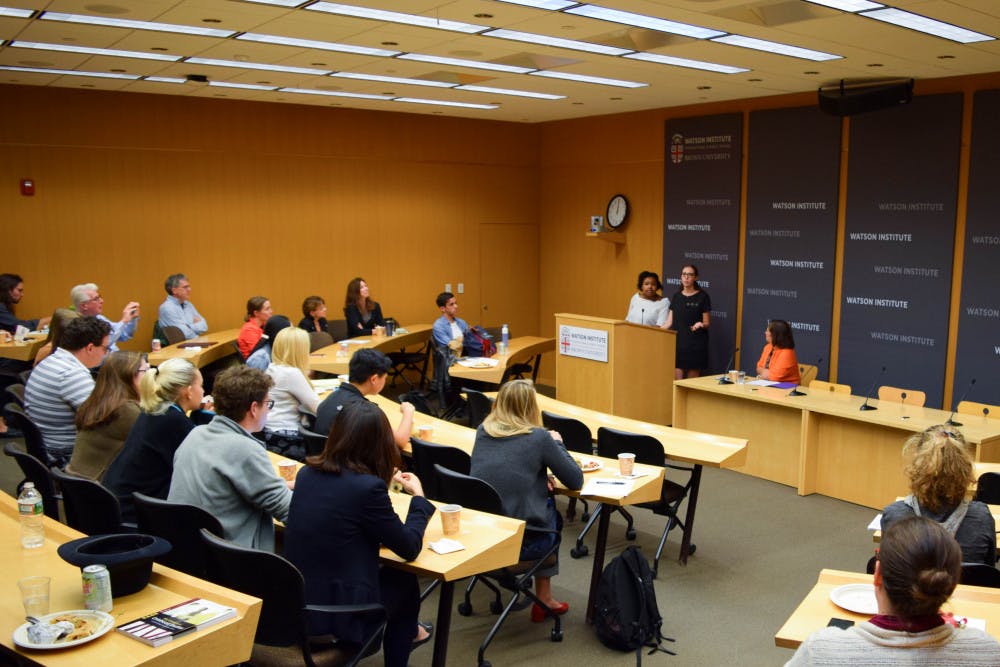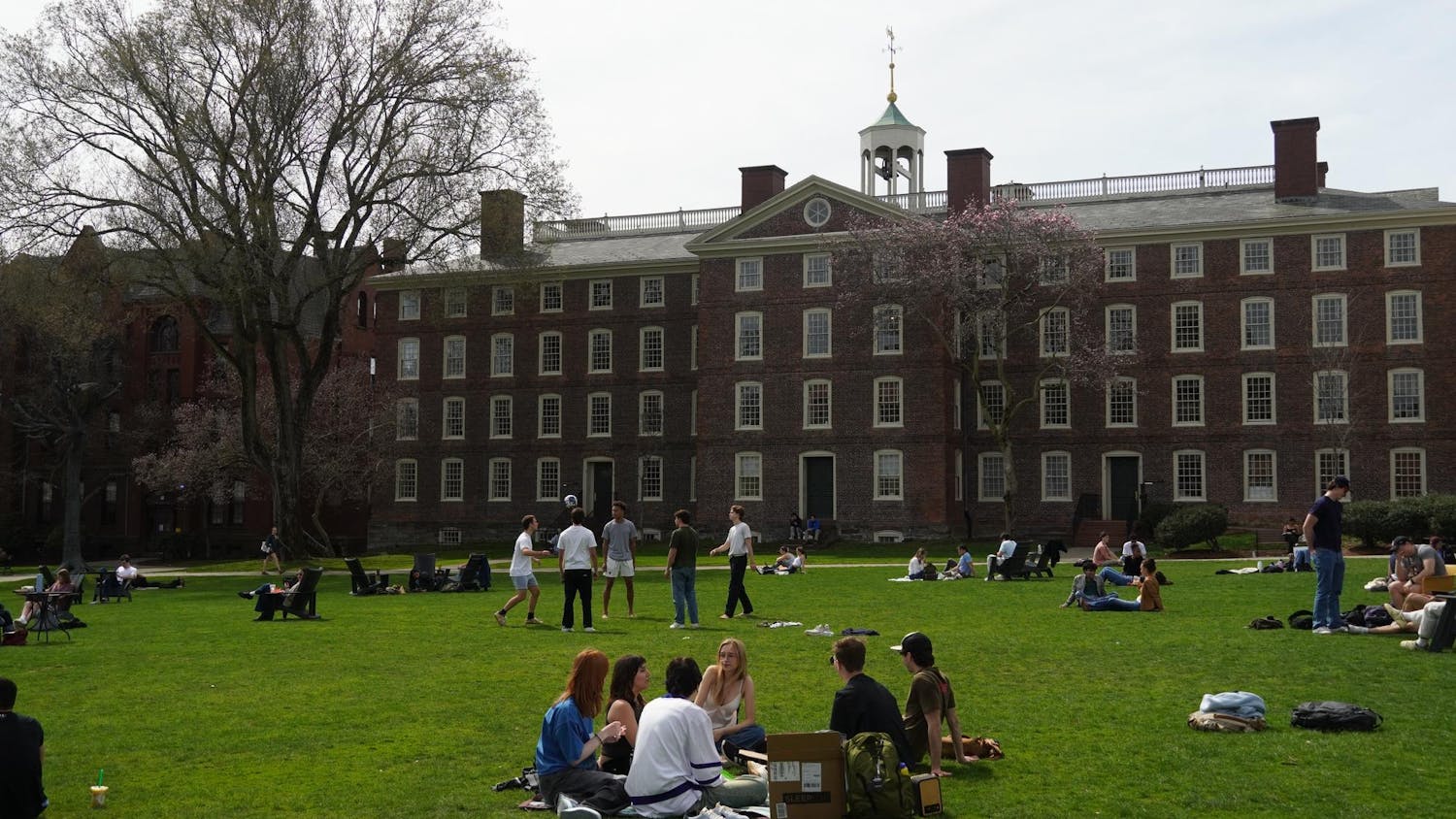Lucrezia Sanes ’17 and Shavon Bell ’17, a former Herald senior staff writer, formed Women, Empowered., a multidisciplinary initiative and group focusing on political action and activism, this year. With the help of faculty advisors and a $10,000 collaboration grant from the Watson Institute for International and Public Affairs, the group hopes to elevate the voices of women in the social sciences.
The group plans on hosting speakers, running resume-building workshops and holding counseling sessions and group discussions regarding women’s empowerment. It kicked off this year with a talk from Rhode Island Secretary of State Nellie Gorbea Monday and will hold bi-weekly meetings with the goal of creating a network among members.
The group aims to focus on intersectionality, which members view as an unrecognized challenge to women in politics and policy. One of the biggest difficulties for women in politics is “being her whole person and reflecting dimensions of herself in ways that might not fit into a box,” said Susan Moffitt, associate professor of political science and international and public affairs and a faculty advisor for the group. “I just want to defy the boxes and allow for prisms.”
Sanes and Bell noticed a need for this group after taking POLS 1823Z: “Gender and Public Policy” with Moffitt in the spring. They saw that Brown has specific groups for women in business, science and engineering and computer science, but not one for women in the social sciences. “There were all these other groups, but we didn’t really fit into any of them,” Sanes said.
There are no organizations on campus asking “What’s it like to be a woman working in the world and pursuing your educational professional career?” said Wendy Schiller, professor of political science and chair of the department as well as professor of international and public affairs and faculty advisor to the group. “If you’re interested either academically or professionally in jobs in this area, what does that world look like? What courses might you take? What internships might you pursue? How do you present yourself?”
Bell stated that the initiative is open to all who identify as women and all who feel political activism is important to their disciplines. Though the group currently focuses on the social sciences, Moffitt said the group “very much want(s) to expand to the humanities, the fine arts and the hard sciences,” which all “have important political voices to express.”
Intersectional voices are important to Women, Empowered, Sanes said. They hope to share perspectives of women of color, queer women and international women.
The group aims to define “women” and “politics” “as broadly as (those) term(s) can be defined,” Bell said.
There are several barriers and struggles particular to entering politics that women face, Schiller said. “More than 50 percent of the Senate has served in the House of Representatives, and 46 percent of senators have served in state legislatures, so when you think about that career path, that means women have to start pretty early, and I think a lot of women make decisions to go into politics later, particularly if they decide to have children,” she said.
Schiller spoke of her own experiences on the staffs of New York Gov. Mario Cuomo and U.S. Sen. Daniel Patrick Moynihan, D-NY. Women were not allowed to wear pants on the Senate floor in the mid-1980s, and there was not an accessible bathroom for women, who had to go “winding through the Senate floor” to access a facility.
“I’m sure there were gender differences in pay, … but I never felt that I couldn’t do what I wanted to do,” Schiller said.
The group sought out faculty advisors with diverse sets of experiences and expertise. The advisors include Schiller, Moffitt, Assistant Professor of International and Public Affairs and Sociology Jayanti Owens and Associate Professor of Economics and International and Public Affairs Emily Oster.
“We’re social scientists, but we have a big range of social science disciplines we represent,” Schiller said. “What I really like is that we are bringing to the table this really great, diverse set of experiences in different disciplines about being a woman in different eras, and I hope that that will be useful.”
Sanes and Bell said they hope to have created something that will have a lasting impact on campus given that they will graduate at the end of this year. “It is something that we have started and something that we have created but also something that we can pass on so it can grow,” Sanes said.





